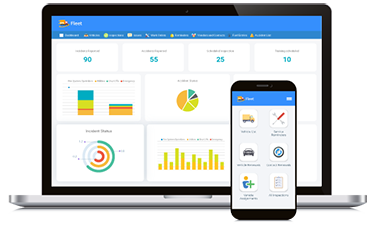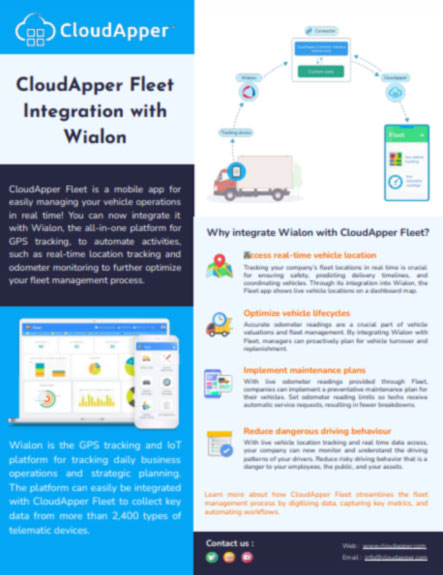Table of Contents
Like any other task, technology has made fleet management very easy. That is why adopting innovative methods has become a necessity for most. Technology is all around us. It makes our lives easier and simpler. If before, a simple task would have been very lengthy and hard to accomplish, now, with the help of technology, we can complete difficult tasks within minutes.
This innovation has also helped businesses operate much more efficiently. From finance to management, technology has helped all departments of a business. That is especially true in the case of fleet management companies. With the help of a simple fleet tracking system, companies are running much more efficiently.
Overcome Challenges
It is not easy to run a fleet business. Information is very crucial here. A simple gap can hinder the whole workflow. Apart from that, there are many more challenges that fleet companies face.
Miscommunication
Fleet management requires constant communication. Managers need to know the whereabouts of a vehicle, the time of finishing a task, the number of available vehicles, and more. For this reason, they must keep track of the work in progress. If there was a communication gap, this would give rise to major inefficiencies.
Losing track of a vehicle
Since vehicles are always on the go, it can be very difficult to track their locations. That means the company cannot accurately know when the vehicles will be ready for their next trips. Because of this simple lack of information, the company will stop doing business, assuming there are no vehicles available.
Expensive fuel
There is no way for a company to track routes without a fleet tracking system. Indeed, drivers tend to use their desired routes, although it might not be optimum. Many companies lose thousands of dollars annually due to this issue.
Non-routine Maintenance
Keeping track of all vehicles can be overwhelming for a company. Each vehicle has to be serviced regularly to deliver the best performance. Plus, doing so increases the durability and lifespan of a vehicle. However, a few vehicles might miss their maintenance date, and the company might overlook it due to limited monitoring methods.
You may also like to read: 10 Key Features a Fleet Management Application Can Provide
Essential features to consider for fleet tracking systems
To cope with challenges, companies can adopt fleet tracking systems. To find the best one, look for the following features.
Remote Task Allocation
Allowing a manager to assign tasks remotely avoids a lot of work, as the manager can see the tasks assigned to employees. In that way, if a new task has to be assigned, they can select the appropriate employee to assign it to. Also, the task’s process status can be tracked, which makes information more open and easy to share.
Live location tracking
If the live location of a vehicle can be tracked, then the company can be aware of the time of transportation. Thus, it can monitor when a vehicle reaches one task and begins another. The company can therefore allocate tasks more accurately, making the operation more efficient.
Remote Monitoring
Through remote monitoring, the route taken by drivers can be traced. Along with that, a full breakdown of the trip can be deduced, such as the total time, waiting time at each point, distance traveled, etc. This information can be later used to take the appropriate course of action.
Vehicle Maintenance
If a system is integrated with the maintenance of the vehicles, it is less likely to miss the due date. The company simply has to input the dates of the maintenance circles for each vehicle. The system will then remind you of the maintenance cycle before the due date.
Introducing fleet tracking systems can really change the way businesses are perceived. Such innovative methods will bring promising results for businesses.
CloudApper Fleet: The next step of fleet management
With the Cloudapper Fleet app, users can easily track the whole business process. This app offers exciting features designed to provide the best user experience. We understand that each business has a unique way of operating, which is why it is developed with a customization option. To find out more, sign up today.
What is CloudApper AI Platform?
CloudApper AI is an advanced platform that enables organizations to integrate AI into their existing enterprise systems effortlessly, without the need for technical expertise, costly development, or upgrading the underlying infrastructure. By transforming legacy systems into AI-capable solutions, CloudApper allows companies to harness the power of Generative AI quickly and efficiently. This approach has been successfully implemented with leading systems like UKG, Workday, Oracle, Paradox, Amazon AWS Bedrock and can be applied across various industries, helping businesses enhance productivity, automate processes, and gain deeper insights without the usual complexities. With CloudApper AI, you can start experiencing the transformative benefits of AI today. Learn More
















